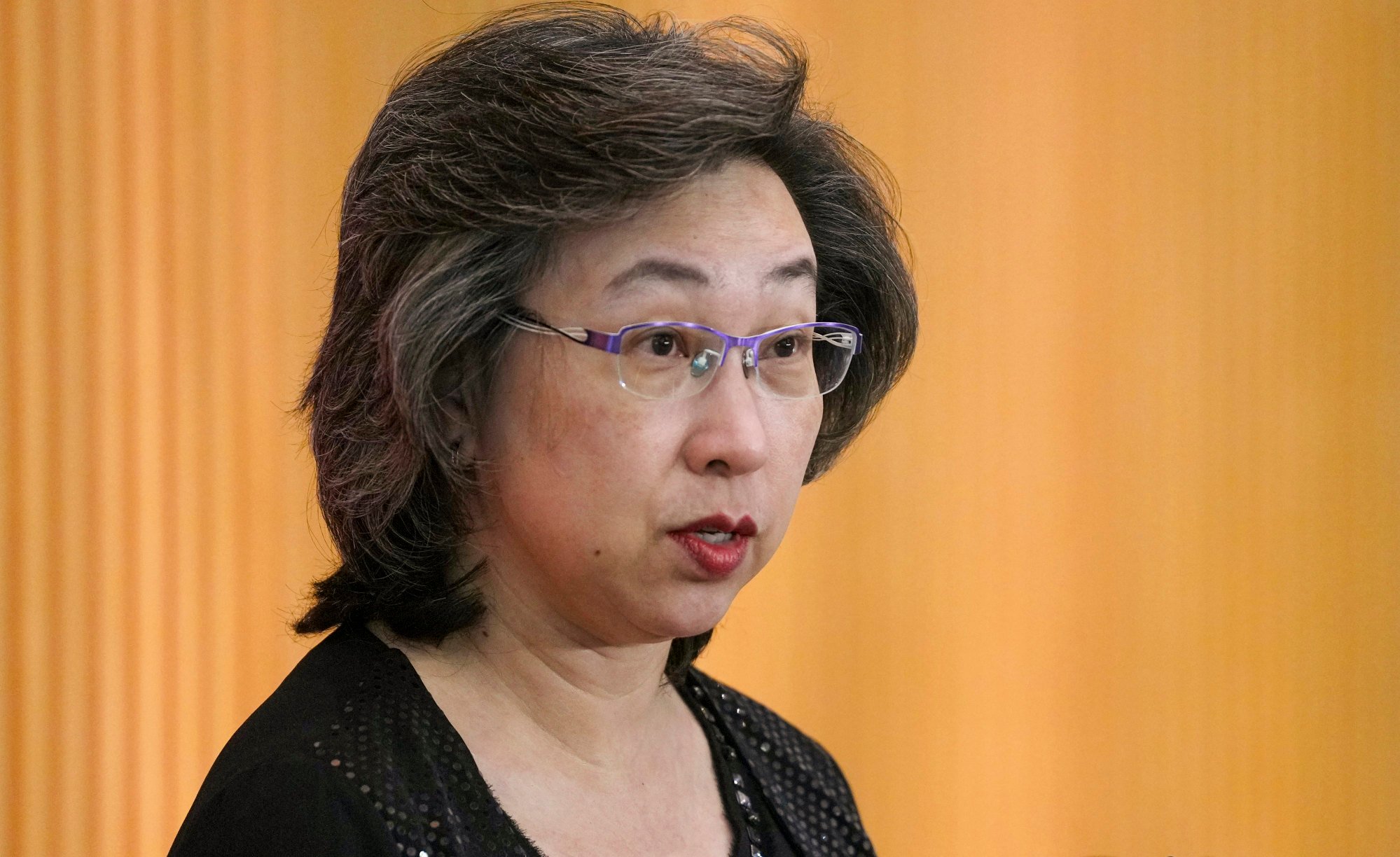
Plan to raise Hong Kong civil servants’ pay by up to 4.65 per cent backed by Executive Council; minister dismisses union complaints
- Secretary for the Civil Service Ingrid Yeung rejects suggestions that proposed salary increases may fail to match inflation and not be enough to retain staff
- Yeung says pay is not the only factor influencing people’s decision to join and remain in government, but staff association insists salary an important consideration
Hong Kong’s key decision-making body has backed a proposal to raise the pay of government workers by up to 4.65 per cent, as the head of the civil service dismissed concerns about whether the increases would be enough to cut high staff turnover.
But several trade unions on Tuesday said they were disappointed the government did not take the opportunity to boost morale, and some called for a 5 per cent raise across the board.
The pay increases for civil servants, backdated to April 1, will amount to HK$5.2 billion (US$663 million) for the year, according to a brief submitted by the government to the legislature. Together with increases for staff graft-buster and subvented organisations, the total will be HK$11.52 billion.
Secretary for the Civil Service Ingrid Yeung Ho Poi-yan, speaking after the Executive Council supported the plan, rejected suggestions by unions that the salary increases might fail to match inflation.
Yeung added pay was not the only factor that influenced people’s decision to join and remain in government service.

“When considering the pay adjustment proposal, Exco has balanced all six factors,” she said, referring to variables considered including the state of the economy, the government’s fiscal position and staff morale.
“Hong Kong’s economy is on the path to recovery, but under an uncertain external environment, there are still challenges. The government in the previous 2022-23 financial year and this financial year has accumulated a certain amount of deficit.”
The proposal, mostly in line with the results of an earlier pay trend survey, suggested an increase of 2.87 per cent for high-ranking civil servants and 4.65 per cent for middle- and lower-ranking staff.
The proposal is in accord with the standard practice of matching the bumps of the two grades. The survey earlier suggested only a 4.5 per cent rise for junior members.
Yeung said she disagreed with suggestions the increases did not keep pace with inflation and noted that overall pay rises for civil servants over the past five years had surpassed rises in the cost of living.
“However, the intention of the civil servant pay adjustment mechanism has never been to chase after inflation. This is something we have to keep in mind,” she added.
Hong Kong civil servants ‘could get 4.65 per cent pay bump’ amid improving economy
Yeung insisted pay was not the only factor in people’s decisions to join the civil service and convince them to stay.
“We are working very hard to make our colleagues feel satisfied about their work. We are also doing a lot of work to train our colleagues, so they have the chance to grow and fulfil their own experience, we will also ensure our system to select talent functions well,” she added.
Yeung said she would meet civil service unions on Wednesday and added that the confirmed increases would be sent to the Legislative Council for approval after they had been finalised by Exco.
The suggestions, if approved, would be the highest increases since 2019, following a reduced increment of 2.5 per cent for all salary bands in 2022 and a two-year pay freeze over the Covid-19 pandemic.
Li Kwai-yin, president of the Chinese Civil Servants’ Association, said members were “a little disappointed” with the approved increase as it did not seem to have kept up with inflation that had built up over previous years.
“Civil servants are workers as well, when facing the future pressure of inflation, this will lead to the buying power of their salary being affected,” she said.
“The Chinese Civil Servants’ Association also thinks it is a shame that the government did not use this opportunity to raise morale.”
Li said civil servants faced increased workloads over the pandemic, as well as pressure caused by staff shortages.
She said the association would make a counterproposal for a 5.1 per cent pay increase for all ranks at the Wednesday meeting.
Hong Kong civil service union wants 5.1 per cent pay increase across the board
Li added that salary levels were an important consideration for civil servants because they directly affected their livelihoods.
The Hong Kong Senior Government Officers Association said it was “extremely disappointed” with the proposed 2.87 per cent increase.
The association said the government had not taken enough account of morale and their demands and that their contributions had been ignored.
The Government Employees Association said the proposal was understandable compared with the 2.5 per cent increase the previous year, but argued the government should take the opportunity to offer a 5 per cent raise for all grades to “further repair and increase morale”.
Terence Chong Tai-leung, executive director of Chinese University’s Institute of Global Economics and Finance, said he supported an increase of between 4 and 5 per cent for all public service grades.
“This year’s pay increase should take into account last year’s actual action, since they have pushed down the pay for higher ranking civil servants … shouldn’t they compensate the people who lost out last year?” he said.
In a rare move, Exco last year rejected union lobbying and only approved a 2.5 per cent pay rise for all government workers on the grounds prudence was needed amid economic uncertainties.
The increase was far short of the 7.26 per cent increase the Pay Trend Survey Committee proposed for senior government workers and the 4.55 per cent rise for middle-ranking ones. But it was higher than the 2.04 per cent recommended for junior workers.
“The government made an across-the-board increase last year, so it would be unfair to a group of people last year,” Chong said.
“This year, the result has reversed with senior staff getting a lower increase than junior staff, so doing another across-the-board increase to balance out both years would be much more fair.”

